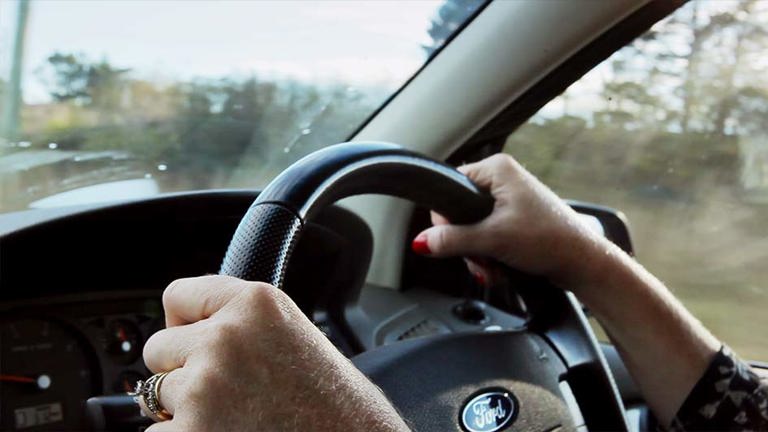Do you use your personal car for work purposes? Or do you provide a company car for your employees to drive? If so, you might be considering some form of business car insurance to help ensure you’re adequately covered.
However, the line between personal and business use can sometimes be blurry, such as with small businesses where employees use their personal vehicles regularly as part of their job. And this can be extra confusing when it comes to car insurance.
Youi doesn’t have a specific business car insurance product, but we do have options that could suit your needs. Below, we’ve put together a guide to help you navigate business car insurance – from defining what it means and when it’s relevant to figuring out what levels of cover are available for your circumstances.
What is business use?
If you’re considering business car insurance, it can be useful to first understand the relevant terminology. Different insurers define terms such as “commercial”, “business use” and “private use” differently, so a helpful first port of call could be your insurer’s product disclosure statement. This should give you an idea of how they categorise their products.
At Youi, business use refers to “a car that is used as an essential part of any work or business or that is used to generate income or reward”. Examples might include using your car to meet clients, travel between offices or travel to and from worksites.
In some circumstances, there may be some crossover between private use and business use – like using the car to visit clients during the day, then picking the kids up from school at the end of the day. In this case, it might be a good idea to ask your insurer how this could affect you.
Marni Jackson, Youi Head of Product – Vehicle, says that if you use your personal car for business purposes, such as visiting clients or carting tools and equipment around, it might be covered under standard car insurance policies. However, she advises being clear with your insurer about what the car is used for.
“If it’s the car that you rely on to visit your clients regularly as part of your business, you need to disclose that as business use,” Jackson explains.
When insuring for business use, what levels of cover apply?
There are three levels of cover when insuring your vehicle, and these are the same for both personal use and business use: Comprehensive, Third Party Fire & Theft and Third Party Property Only.
There are also optional extras that can be selected, that may be of interest to those looking for car insurance for business use, like cover for business items.1
“Cover for business items can be added if you have Comprehensive or Third Party Fire & Theft cover, and it provides cover for loss or damage to business items while they’re safely stored in the car,”2 Jackson says, explaining that this is separate to the standard ‘contents inside the car’ that may already be covered with Comprehensive or Third Party Fire & Theft products.3
Insuring multiple drivers for business use
Some businesses have more than one driver using a vehicle, so it can be a good idea to keep the list of drivers on your business car insurance policy up to date as your employees change.
“For those that drive the vehicle often, you can list them on your policy. For drivers who are not listed on the policy, there can be unlisted driver excesses that may apply,”4 explains Jackson.
The cost of unlisted driver excesses can vary between insurance companies – this is likely to be listed in your policy schedule.
And just like with private car insurance, the details of drivers listed on your business car insurance policy could affect your premium.
“When listing drivers, their driving history is taken into account when calculating the premium,” Jackson says.
Managing your policy
Something to consider when buying business car insurance is who you would like to give authority to act on your behalf. An authorised person will have the ability to add and remove drivers, update payment information, and make a claim.
“If all of the right people are given authority when the policy is setup, future policy updates are quick and easy.” Jackson says.
Maintaining your car for business use
Insurance isn’t the only car-related expense you might need to think about when it comes to a vehicle that’s used for business. Fuel, finance and registration will also go on the bill, along with maintenance.5
“If your car is on the road more often, and you rely on it as part of your daily business activities, it’s important to keep it well maintained,” says Jackson.
For this reason, it could be a good idea to undertake regular maintenance to ensure your car continues to be roadworthy and safe to drive. According to the Motor Trades Association (MTA) Queensland, most modern cars should be serviced every 12 months or 15,000km (whichever comes first).6
If your car breaks down and is off the road for a period of time, this could result in costs for your business. For instance, on top of paying for repairs, you may potentially lose income through hampered productivity, depending on the nature of your business.
Adhering to a maintenance schedule – such as the one in your vehicle logbook or owner’s handbook – can help avoid the possibility of breakdowns or expensive repairs in the future.7
At Youi, we recognise that each business and each vehicle owner is unique. Whatever your needs when it comes to insuring your car for business purposes, we have a range of options and levels of cover available that might suit. For more information, or to start a quote, consider contacting us today.
1 See our Car PDS for full details
2 An additional cost applies and is available with Comprehensive and Third Party Fire & Theft policies. For business items, additional restrictions apply. For more 3 details, see the Car PDS
3 Exclusions and limits apply. Covers damage to or loss of business items while stored in the car or unbraked trailer, and where there is also damage to the car or unbraked trailer as a result of an insured event. To be covered for theft, items must have been in a locked boot or lockable compartment which was permanently secured to the car; and the car was locked and there are visible signs of forced entry. For more details, see the Car PDS
4 Some policies do not allow unlisted drivers to be covered, and certain special conditions may apply. For more details, check your policy schedule
5 Source: Canstar – Cost of owning a car in Australia, 2023
6 Source: Motor Trades Association Queensland – How often should I service my car?, 2021
7 Source: NSW Government – Vehicle repairs and maintenance




